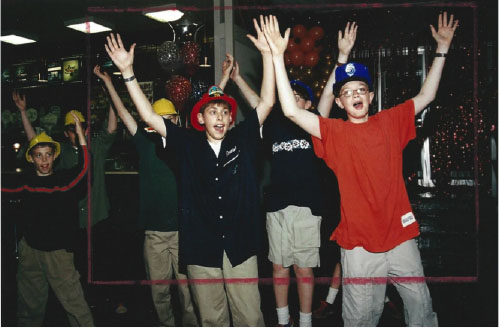
I got to see a taping of “The Colbert Report” this week, and I’d never been to a taping quite like that. I’d been in studios for TV morning shows, and for high school quiz shows, but nothing like “Colbert.”
There’s something different about “Colbert.” When you’re waiting to get into the show, a woman comes out and tells you how important it is that you get excited and loud, because the crowd is the show’s soundtrack, and the show depends on you.
And then a guy comes out a few minutes later, and says the same thing.
And then they seat the audience, and a warm-up comic comes out and says the same thing.
And then the stage manager comes out and says the same thing.
And then Stephen Colbert himself comes out and says the same thing:
You are the soundtrack, and the show depends on you.
And then right before the show starts, just in case you weren’t sold on your role in this, Colbert looks out from behind the desk and shouts, “Have a great show, everyone!”
And after being reminded for 45 minutes straight that I needed to be loud and cheer like a maniac, what happened? I laughed really, really hard. I laughed like I was seeing “Colbert” perform for the very first time.
Yes, the show was very funny. But what was amazing to me was how well the show’s staff conveyed a simple message: You are the show’s soundtrack, so laugh your ass off, and then they spent a ton of time getting us into a great mood so we could do just that.
I was so impressed by how simple and direct the message was. They took an otherwise mundane thing — watching a guy read a teleprompter for 20 minutes — and turned it into a performance that we were excited to be part of. And it’s that simple message allows them to create a fantastic atmosphere for the show every single night.
Of course, I woke up the next day and watched the finished episode. I was looking for myself, sure. But more than that: I was listening for myself. Were we loud enough?
We were. And we really did make for a great soundtrack, and a really great show.





